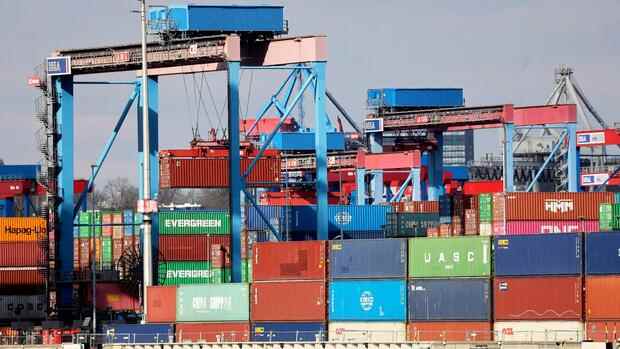Berlin The German Council of Economic Experts has revised its economic forecast significantly downwards. In their current forecast, the “economic experts” are only assuming growth in German gross domestic product of 1.8 percent in 2022. The forecast is available to the Handelsblatt. In their last economic forecast in November, the economists still assumed growth of 4.6 percent. The new growth forecast for 2023 is 3.6 percent.
“Russia’s war of aggression against Ukraine significantly increases uncertainty, dampens growth and contributes to rising energy and consumer prices,” the forecast reads. Europe is particularly affected by this. The German Council of Economic Experts is forecasting economic growth of 2.9 percent for both 2022 and 2023 for the euro area.
For the forecast, economists assume that energy prices will remain elevated, but that Russian energy supplies will not be stopped. However, the economists point out: “The high dependency on Russian energy supplies harbors the considerable risk of lower economic output and even a recession with significantly higher inflation rates at the same time.”
As a result of rising energy prices, the German Council of Economic Experts also expects a significantly higher inflation rate. The estimate for Germany for 2022 is now 6.1 percent. That would be the highest value since the early 1990s, when the boom after German reunification fueled inflation.
Top jobs of the day
Find the best jobs now and
be notified by email.
Previously, the economists estimated inflation for the current year at 2.6 percent. In 2023, inflation is still expected to be 3.4 percent. The inflation rate in the euro area is forecast at 6.2 percent for the current year and 2.9 percent for the coming year.
Economic methods warn most insistently
Other economic researchers had previously dampened their growth prospects. However, in none of the cases was the revision as severe as it is now in the case of the Council of Experts. The Kiel Institute for the World Economy (IfW), for example, halved its national outlook for 2022 to 2.1 percent. The Leibniz Institute for Economic Research (RWI) is only expecting growth of 2.5 percent and the Halle Institute for Economic Research (IWH) is forecasting 3.1 percent.
The Council’s position on the question of whether Germany can afford an embargo on Russian energy was also eagerly awaited. The four economic wise men had represented different theses in the past.
The embargo question has been driving the economy for a few weeks and is causing considerable differences in the scene. The debate has also reached Chancellor Olaf Scholz (SPD), who, like the rest of the federal government, continues to vehemently oppose an energy embargo.
The dispute had its preliminary climax on Sunday. In a television program, Scholz accused a group of economists who consider an embargo to be feasible, of “putting together some mathematical models that then don’t work”.
The economists do not give a clear, conclusive opinion in their economic forecast on the subject of the embargo. However, they explain that Germany must immediately take all measures to protect itself against a delivery stop.
Many industries affected by current uncertainty
Even without an embargo, the economic prospects are bleak. The German energy industry in particular is suffering from the current situation with the high prices for gas, oil and coal. The federal government has already received the application from the energy company VNG for a loan from the KfW worth billions.
However, industrial companies from energy-intensive sectors such as metal, glass, paper and chemicals are sometimes confronted with a multiplication of their electricity and gas bills. Many bankruptcies are feared in some sectors.
Added to this are the sanctions against Russia, which prohibit German companies from doing business and entail considerable bureaucratic work for entrepreneurs. Recently, disrupted supply chains are also weighing on the economy. In the automotive industry, for example, there is a lack of cable harnesses that are otherwise manufactured in the Ukraine.
Federal Minister of Economics Robert Habeck (Greens) now wants to react to this and launch state economic aid on a large scale. In a letter to Finance Minister Christian Lindner (FDP), Habeck writes that he wants to rededicate the economic stabilization fund (WSF) from the corona crisis, as reported by the Handelsblatt.
The federal government launched the WSF during the pandemic and endowed it with 600 billion euros. Most recently, the volume was reduced to 150 billion euros. The WSF is still by far the federal government’s largest crisis instrument.
The state can use the money to invest directly in distressed companies, such as Lufthansa after the outbreak of the pandemic. In addition, loans can be secured by the fund. The aim is to avert insolvencies “of particularly relevant companies in order to limit the effects on the entire economy”. Lindner, however, has so far positioned himself against the plan.
More: “We are in the middle of a broad investment freeze” – Ukraine war blocks the German economy
